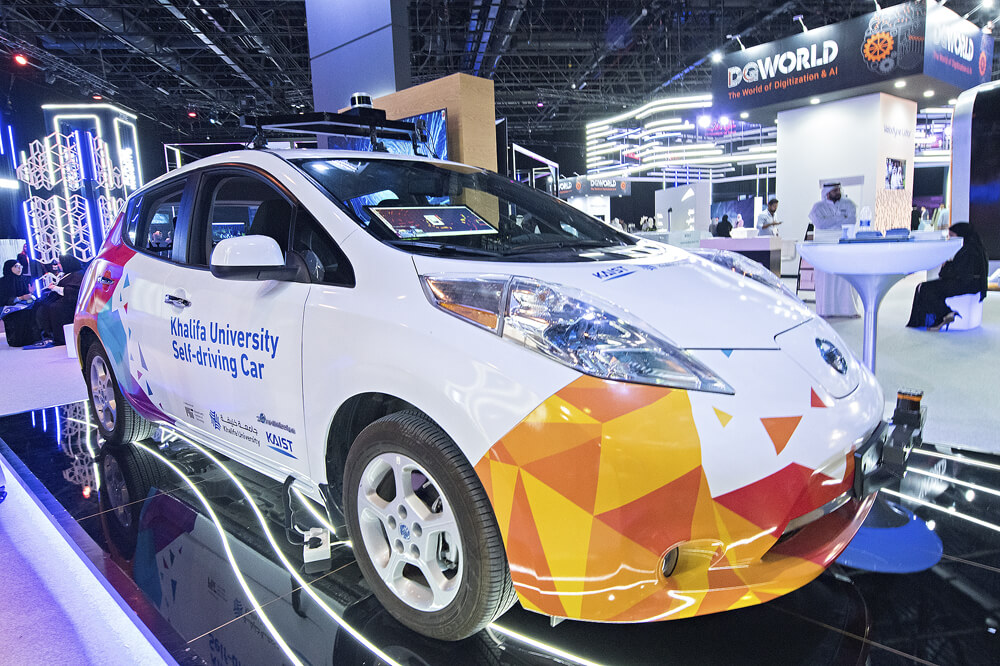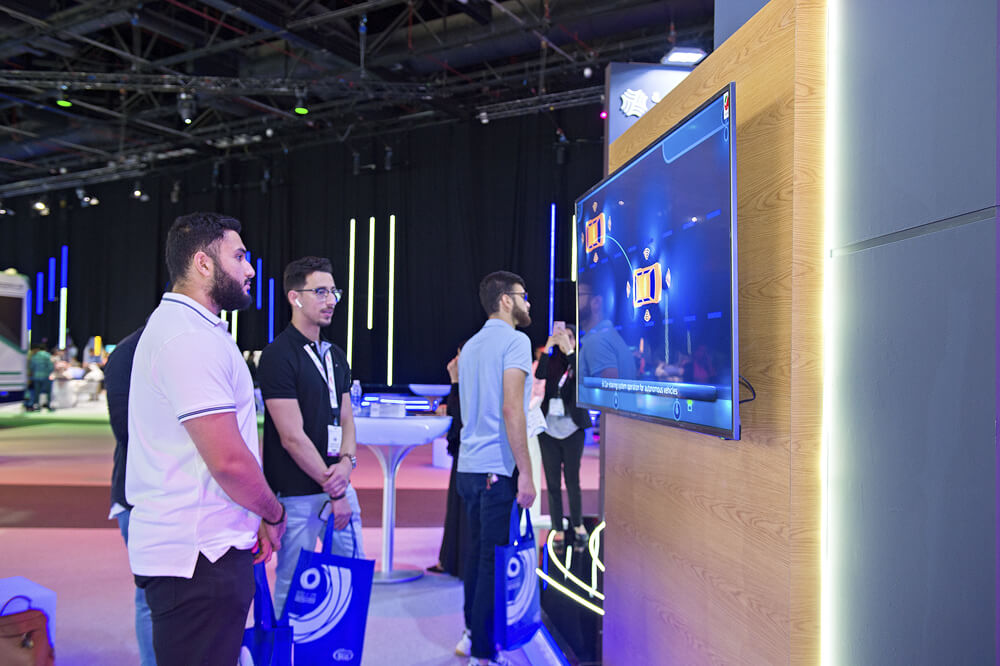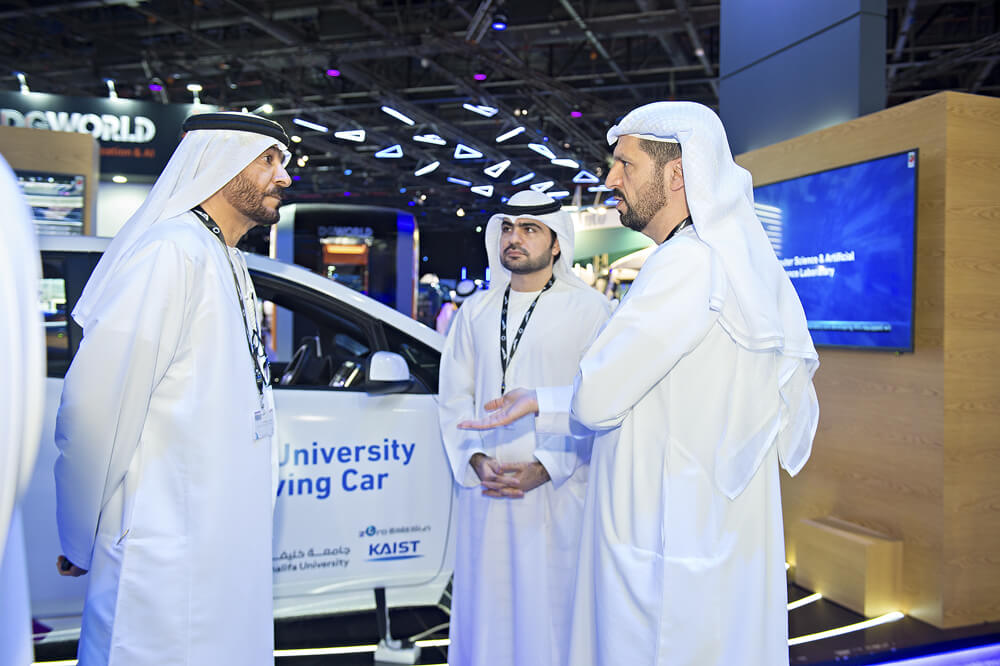
Three Innovative Autonomous Vehicle Research Projects Aimed at Making AVs Safer Were Featured at Dubai World Congress for Self-Driving Transport
Khalifa University faculty and students showcased three cutting-edge projects that are advancing the state-of-the-art in autonomous vehicles and smart transportation during the Dubai World Congress for Self-Driving Transport, which took place from 15-16 October in Dubai.
The congress brought together top experts, policymakers, technology developers, researchers and academia to exchange ideas and proposals about connected autonomous vehicles.
Dr. Majid Khonji, Assistant Professor of Electrical Engineering and Computer Science, and his students presented three projects, including a jointly developed KU-Korea Advanced Institute of Science and Technology (KAIST) self-driving car prototype, to hundreds of Congress visitors.
All three projects directly address the critical need to improve safety assurance of autonomous vehicles.
The first project is being developed by Dr. Khonji and a team of researchers at KU’s Center for Autonomous Robotic Systems (KUCARS) – one of the flagship research centers under the University’s newly launched Artificial Intelligence and Intelligent Systems Institute. The team is programming self-driving cars with robust algorithms designed to help an autonomous vehicle (AV) do route planning under uncertainty. Uncertain conditions and environments, like extreme weather and unknown roads, pose technical challenges to an AV’s perception algorithms – the algorithms that allow a car to understand what it “sees.”

The algorithms being developed at KUCARS aim to help AVs determine uncertainty from the environment through the three key subsystems of perception, prediction, and planning and control, while simultaneously helping to ensure safety.
The second project is being developed in collaboration with MIT’s Computer Science & Artificial Intelligence Laboratory (CSAIL). It aims to improve vehicle-to-vehicle communication between AVs. Improving an AVs ability to “talk” with other vehicles would significantly improve the safety and reliability of an autonomous vehicle.
The collaborative teams are developing connected AVs capable of planning trajectories while avoiding obstacles and meeting efficiency constraints while keeping collision risk below a given safety threshold that meets government regulations.

The third project on display at the Congress is the KU-KAIST self-driving vehicle prototype, which is being developed under the recently launched KU-KAIST Joint Research Center. The AV is being developed with enhanced vehicle-to-infrastructure communication capability that will allow the AV to receive critical information from a road network. It is also being developed with enhanced cyber-security systems, car-sharing systems, path following, and auto parking using magnetic field localization.
The Dubai World Congress for Self-Driving Transport featured more than 700 technology leaders and innovators and 3,000 visitors. The event aimed to highlight the leading role Dubai is playing in self-driving transport and to accelerate efforts to achieve the targets of Dubai Autonomous Transportation Strategy by attracting experts and technologies of self-driving transport to the UAE.
The event also honored the winners of the Dubai World Challenge for Self-Driving Transport (which carries a prize money of AED19 million). The challenge attracted 65 entities from 20 countries, 15 of whom qualified for the finals. The challenge focused on the first and last-mile challenge of mobility journeys.
Erica Solomon
Senior Editor
16 October 2019